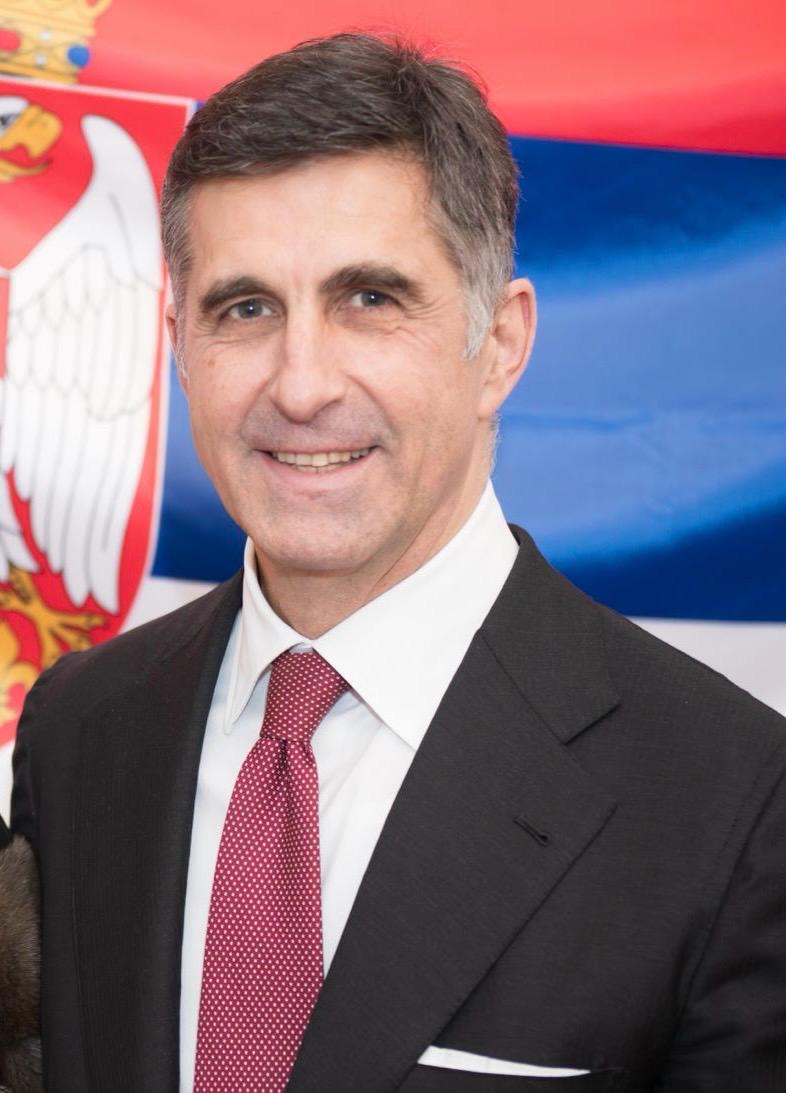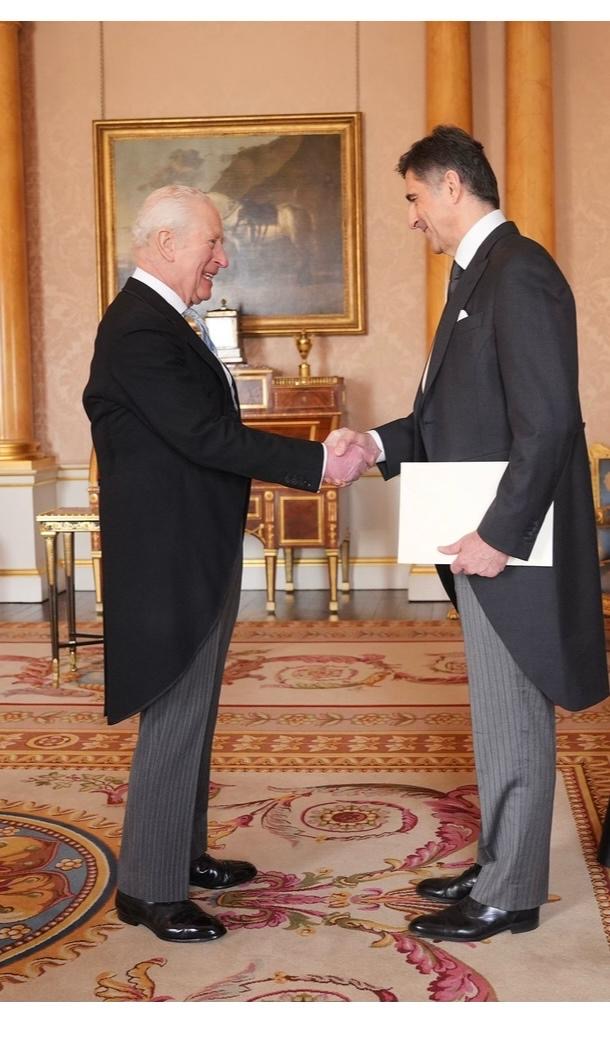OUR BLOG
Interview with H. E. Goran Aleksić, Ambassador of the Republic of Serbia to the United Kingdom of Great Britain and Northern Ireland
The World May Be Getting Faster, but Diplomacy Must Not Be Hasty

The goals and scope of Serbian foreign policy and diplomacy are somewhat specific relative to other European countries. We may not be a global power, but Serbian diplomacy needs to be active internationally in order to protect its state and national interests
We are living in a multi-polar world. Even though no single global power enjoys global hegemony, the international stage is complex, unpredictable, and filled with conflicts, which is a challenge for modern diplomacy. The fact that the world is moving ‘faster’ does not mean that diplomacy should be hasty. The classic, traditional diplomacy implies a calm and well-designed approach to resolving disputes, preserving peace, building bridges, and establishing trust. Diplomacy is, first and foremost, a discreet but essential tool to protect one’s country from foreign challenges and threats, and it is necessary for the promoting of the country’s reputation worldwide. It serves to preserve the political and economic stability of a country, its interests and international reputation, while constantly reviewing all of the safety aspects. All of this is done in a reliable, discreet, and institutionally grounded fashion, which often happens away from the public eye.
This is how Goran Aleksić, one of the most experienced Serbian diplomats, with a career spanning over three decades, describes the current state of affairs in international relations and the role of diplomacy in the modern world for Dipos Magazine. Mr Aleksić has represented Serbia in major European capitals – Athens, Kyiv, and Rome, and worked in many international bodies and organisations. Today, as the ambassador of the Republic of Serbia in London, he continues to establish dialogue and build ties with the world, relying on his extensive knowledge and years of experience in international relations.
Diplomacy is encoded in your family, and you have been familiar with all of its nuances from a very young age. How much has this vocation changed over the previous decades?
There were both advantages and disadvantages related to the decision to continue with my family tradition. The fact that I was able to learn about the diplomatic way of life, behaviour, and specific obligations from an early age was definitely an advantage. On the other hand, the disadvantages included being away from my country, extended family, and friends, as well as the inevitable need for sociological and cultural reintegration upon returning to the community where I actually belong.
I joined the diplomatic service of former Yugoslavia in 1991. At that time, it was a powerful, well-organised and well-selected diplomatic corps of a country that played a prominent role on the global Cold War stage. In many aspects, it acted as the ‘third super power’, because of its non-aligned status and international support that policy enjoyed. This is an immense legacy that we accepted, which, fortunately, is still available to us, even in these new circumstances. Diplomacy has experienced major changes. The development of technology changed the way in which it operates: from the time when international visits used to be prepared for months or even years and when information was transmitted almost exclusively by telegrams and codes, to today’s practice where political players often talk directly without any intermediaries, and plenty of information is available instantly to the general public. All of this had an impact on the role of the diplomatic service, its importance, and visibility.
Is there a moment in your career that particularly shaped your work as a professional diplomat?
Throughout my career, I went through all diplomatic ranks – from attaché to ambassador. My professional journey was long and challenging, and each new step brought with it a feeling of both satisfaction and new responsibility.
I would like to reflect on the events from the 1990s and the breakup of Yugoslavia, the consequences of which our diplomacy is still dealing with to some extent. I remember my participation in our delegation at the Non-Aligned Movement Summit in Jakarta in September 1992, led by the then Minister of Foreign Affairs Vladislav Jovanović and ambassador Pavle Jevremović. In our delegation’s final report from the summit, in which FR Yugoslavia’s membership in the Non-Aligned Movement was frozen, even though we were one of the founding countries, it was concluded that the erosion of the foreign policy position of our country would continue and that we were facing new diplomatic challenges, and even international isolation. This assessment, which turned out to be true, shaped and defined my entire career.
In terms of diplomatic results, I would like to especially highlight the successes which required team work, dedication, and strategic effort. These include, among other things, our activities in the protection of cultural and historical heritage at UNESCO in 2015, and the diplomatic lobbying for Serbia’s candidacy to host the Specialised World Exhibition EXPO 2027. I am proud of the fact that diplomatic achievements, such as these, testify to the resolve, knowledge, and perseverance of the teams of which I was a part. This clearly shows that diplomacy is a combination of individual skill and team effort, and how crucial perseverance, patience, and trust in national goals are.

Serbia is practically unique in Europe in that it bases its foreign policy course on the UN Charter, respect of all international stakeholders and traditional friendships. How open is the modern world for such a consistent approach?
The goals and scope of Serbia’s foreign policy and diplomacy are somewhat specific relative to other European countries. Serbia is not a global power, but Serbian diplomacy has to be active internationally to preserve its state and national interests. Our foreign policy consistently relies on the principles of the UN Charter, international law, and equal respect for all. This approach brings credibility and predictability, and is a clear testimony to the fact that Serbia strives for universal values and principles which are the basis for a stable international order. However, modern-day relations are increasingly revealing a gap between the declarative commitment to these values and political practice, particularly when it comes to the interests of major powers. Unfortunately, we often witness selective interpretations of international law, where geopolitical and pragmatic interests supersede universal norms.
In that context, Serbia’s position is specific – not only does it defend its vital interests consistently, but also highlights the need to consistently adhere to international law as the basis for relations between countries, as we always emphasize in defending our position regarding Kosovo and Metohija.
Please refer to our Dipos Magazine for the complete interview with Ambassador Aleksić.







 2018
2018